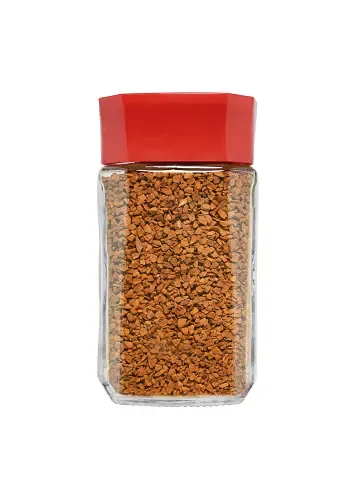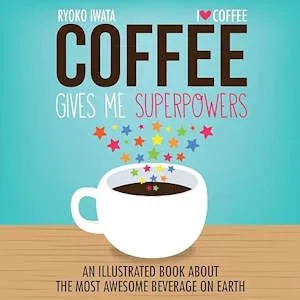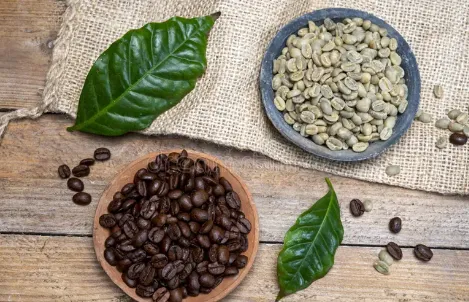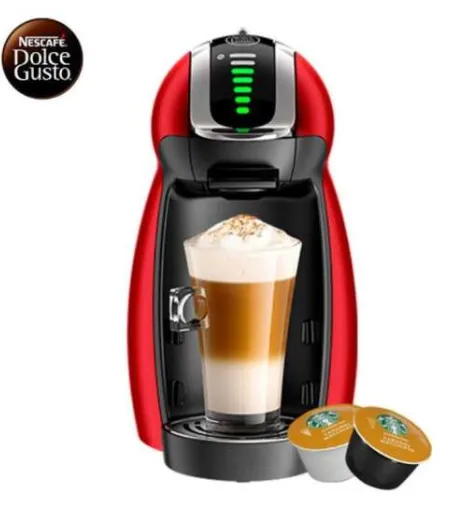The Drawbacks of Instant Coffee - Why it May Not Be the Best Choice
Introduction

Coffee is more than just a beverage; it's a daily ritual, a comforting aroma, and a source of energy for millions of people around the world. While the coffee market offers a wide variety of choices, from artisanal pour-overs to exotic single-origin beans, instant coffee has carved out its own niche. Instant coffee is convenient, quick, and affordable, making it a popular choice for those on the go. However, as we delve deeper into the world of coffee, it becomes evident that instant coffee might not be the best choice for discerning coffee lovers. In this article, we will explore a list of reasons why instant coffee may not meet the standards of coffee aficionados.
Inferior Taste and Aroma
One of the most compelling reasons why instant coffee falls short of its brewed counterparts is the taste and aroma. Instant coffee is typically made from low-quality beans, which are roasted, brewed, and then freeze-dried. This process strips away many of the subtle flavors and aromatic compounds that make coffee so beloved. As a result, instant coffee often lacks the rich, nuanced taste and enticing aroma that freshly brewed coffee offers. Coffee enthusiasts often describe instant coffee as flat, bitter, and devoid of the complex flavor profiles found in freshly brewed options.
Limited Variety
The world of coffee is incredibly diverse, with countless varieties of beans grown in different regions around the world. Each of these beans offers a unique flavor profile influenced by factors like soil, climate, and altitude. Unfortunately, instant coffee cannot capture this diversity. It is typically made from blends of low-grade beans, which means that consumers miss out on the opportunity to explore the exciting world of single-origin coffee or specialty beans.
Health Concerns
While coffee, in general, offers several health benefits when consumed in moderation, instant coffee may come with some concerns. Instant coffee often contains higher levels of acrylamide, a potentially harmful chemical that forms during the manufacturing process. Excessive acrylamide consumption has been associated with an increased risk of certain health issues, including cancer. Additionally, instant coffee might contain additives and preservatives that can be detrimental to health in the long run.
Lower Caffeine Content
Coffee is renowned for its ability to provide a quick energy boost, thanks to its caffeine content. However, instant coffee typically contains less caffeine than its freshly brewed counterparts. This can be a drawback for those who rely on coffee as their go-to morning pick-me-up or need an extra kick of energy during the day. If you're seeking a stronger caffeine jolt, instant coffee may not be the best choice.
Environmental Impact
The production of instant coffee is often less environmentally friendly than traditional brewing methods. The process of manufacturing instant coffee involves a considerable amount of energy and resources, from roasting and brewing to freeze-drying and packaging. Additionally, the packaging of instant coffee usually consists of single-use plastic or non-recyclable materials, contributing to plastic waste and environmental pollution.
Reduced Control
Brewing coffee is an art form that allows individuals to fine-tune their cup of joe to their preferences. From choosing the grind size to controlling the water temperature and brewing time, coffee enthusiasts relish the control they have over the brewing process. With instant coffee, this level of control is greatly diminished. You're essentially stuck with the taste and strength of the coffee provided by the manufacturer, leaving little room for personalization.
Shorter Shelf Life
While instant coffee boasts a longer shelf life than freshly roasted beans, it can still go stale over time. Once the coffee granules are exposed to air, moisture, or light, their flavor deteriorates rapidly. This means that the last cup of instant coffee from a jar that's been sitting in your pantry for months might not be as enjoyable as the first. In contrast, whole coffee beans can be stored in airtight containers and ground just before brewing, preserving their freshness for a longer period.
Questionable Ingredients
Many instant coffee brands include additives and fillers to enhance flavor and extend shelf life. These additives can include sugar, artificial flavors, and non-dairy creamers. While these may be convenient for some, they can detract from the purity and simplicity of coffee. If you prefer a more authentic and unadulterated coffee experience, these added ingredients may not align with your preferences.
Conclusion
While instant coffee undoubtedly has its merits, including convenience and affordability, it may not be the best choice for those who value the richness of taste, the diversity of flavors, and the control over their coffee experience. The drawbacks of inferior taste, limited variety, potential health concerns, lower caffeine content, environmental impact, reduced control, shorter shelf life, and questionable ingredients make it less appealing to discerning coffee lovers.
For those who are truly passionate about coffee, exploring freshly brewed options, such as pour-over, French press, or espresso, can be a rewarding journey. These methods allow you to savor the complexity of coffee flavors, choose from a wide range of beans, and customize your brew to perfection. So, while instant coffee has its place in the coffee world, it may not be the ultimate choice for those who seek the best possible coffee experience.
In your pursuit of a better coffee experience, consider exploring the world of freshly roasted beans and experimenting with various brewing methods. Your taste buds will thank you for the journey, and you'll discover a world of coffee flavors that instant coffee can only dream of replicating.

































